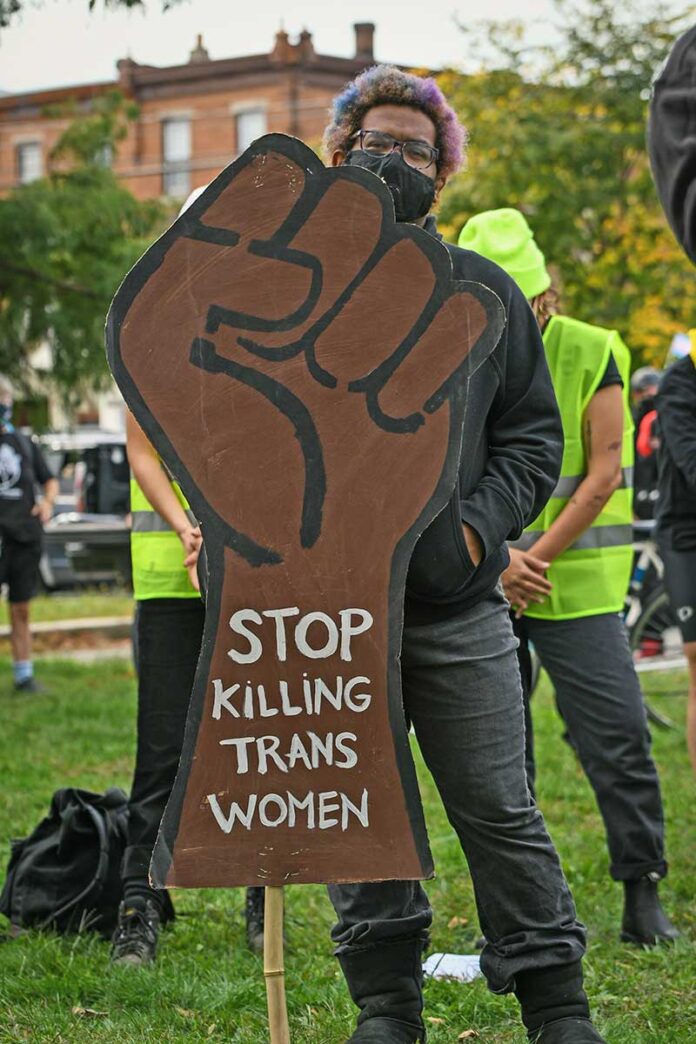By John L. Micek
In January 2020, a man named Marcus Jones asked the Pennsylvania Supreme Court to grant him a new trial for his 2017 conviction in the brutal beating of a transgender woman named Michele Hill two years earlier.
Surveillance video from the 2015 incident in North Philadelphia showed Jones punching Hill 30 times and stomping on her head eight times, before taking her purse and leaving her for dead. As our partners at thePhiladelphia Gay News report, Jones told police that Hill was performing oral sex on him in an alley, when he realized she had a penis, and he flew into a rage.
At trial, a Philadelphia Court of Common Pleas judge rejected Jones’ employment of what’s familiarly known as a “trans-panic defense.” He was convicted on charges of attempted murder and related crimes, and sentenced to a minimum of 13 years in state prison, the Philadelphia Gay News reported.
Some four years after Jones’ conviction, Democratic lawmakers in the Pennsylvania House and Senate say they want to make sure that someone’s sexual orientation or gender identity can never again be used a defense tactic in criminal cases.
For LGBTQ activists across the state, it’s a move that’s long overdue.
“We’re the victims,” Ciora Thomas, a Black transgender woman, and the founder of SisTers PGH, a Black and transgender-led nonprofit organization that provides services to the region’s queer, transgender, and nonbinary Black residents, people of color, and those of indigenous descent. “We’re seeing people trying to victimize the murderers, like they were tricked. That’s not the case.”
“I need [Pennsylvanians] to know that the transgender community, especially the community of color, [is] being harmed, especially by cisgender men,” she added later. “It’s even more predominant among Black cisgender men. It’s a huge thing to highlight this.”
Under existing state law, criminal defendants are currently “allowed to receive a lesser sentence or, in some cases, even altogether avoid conviction or punishment, by placing the blame for their actions on a victim’s actual or perceived sexual orientation, gender identity or gender expression,” the sponsors of the Pennsylvania House bill, Reps. Mike Schlossberg, D-Lehigh, and Ben Sanchez, D-Montgomery said in a statement.
Thirteen other states, most recently Virginia and Vermont, have moved to ban the dehumanizing defense tactic, the two lawmakers said, citing published reports.
Schlossberg and Sanchez currently are seeking co-sponsors for their legislation, which has been introduced in past sessions, but has never won approval. On the other side of the Capitol, Sen. Maria Collett, D-Montgomery, also is seeking co-sponsors for a companion ban bill.
“Let’s be honest: There are people who look for an excuse to hate and hurt others,” Schlossberg said in a statement. “It’s awful that we need to provide protections like this, but it’s our reality. There is no place in our society for fear-based attacks on another person.”
The House lawmakers wrote in an April 7 ‘Dear Colleague’ memo that their bill “would extend beyond the ‘gay’ and ‘trans’ terminology to include all members of this marginalized community by prohibiting the court system from allowing a defense of this nature in consideration of serious provocation or insanity.”
In a memo to her Senate colleagues, Collett said the existence of the defense tactic “is a human rights violation,” and a loophole in existing law that “needs to be closed immediately.”
Violence directed at transgender people exacted a deadly toll in 2020, with 350 transgender people nationwide losing their lives, Forbes reported. The violence came amid an overall increase in hate crimes directed against LGBTQ people across the country, according to the Human Rights Campaign, which cited FBI data.
“It’s important for the community to know that it should not be a legal defense to hurt or kill someone because they are LGBTQ,” Adrian Shanker, the founder and executive director of the Bradbury-Sullivan LGBTQ Community Center in Allentown, told the Capital-Star in a recent interview. “This should not be controversial for our Legislature to see that this should not be a line of defense … Pennsylvania should follow the lead of other states.”
Sanchez offered a similar sentiment in a statement, saying that “as a group of people who already see discrimination and violence directed toward them on a sadly regular basis, the LGBTQ+ community should not worry that our justice system hosts a version of that discrimination. A victim of violence should not feel that their justice system will not protect them because of a loophole that targets their very existence.”
Thomas, a co-vice chairperson of the Pennsylvania Commission on LGBTQ Affairs, told the Capital-Star last week that the advisory panel has consulted with lawmakers on their legislation.
“We’re making sure our voices are being heard,” Thomas said.
John L. Micek is the editor-in-chief of the Pennsylvania Capital-Star, where this article first appeared.
